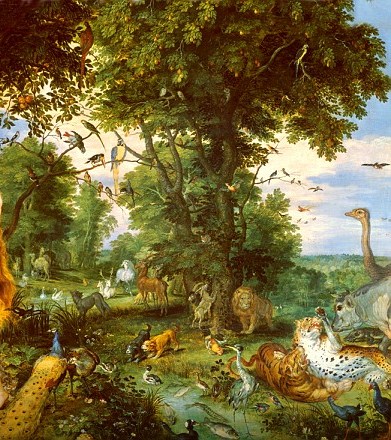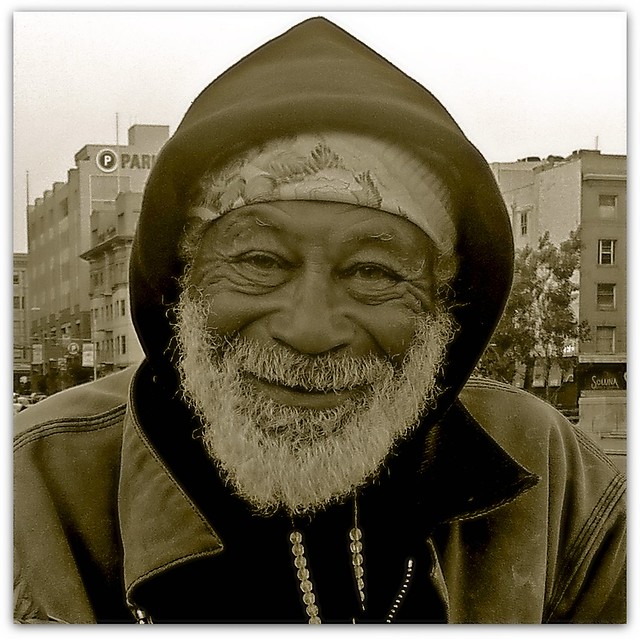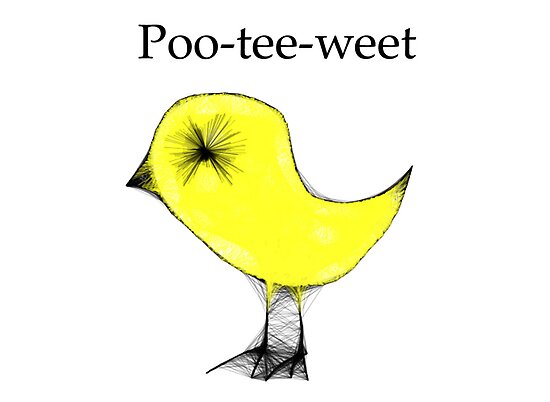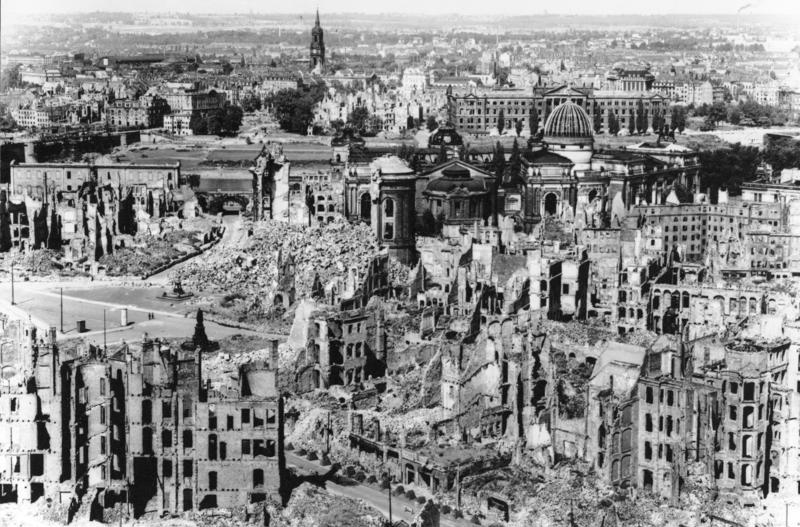Friday, August 3, 2012
Chapter 10 - More Dignity
The the last chapter of the novel, Vonnegut's theme of dignity again arises. He explains that thousands of people are born each day and "supposes all want dignity." Just as many people die each day which puts dignity at a high price. Billy Pilgrim must go to a completely different planet to achieve the dignity he longs for because there may not be enough to go around on Earth. He had little dignity in his early years and it was completely stripped of him when he became a prisoner of war. Vonnegut wonders if there will ever be enough dignity to go around. His point in making dignity an important point in the novel is to get people to understand that we are all born will dignity but must learn to harness it so we can feel it for ourselves.
Chapter 9 - The End of the War
As the novel nears its end, Billy Pilgrim is struck with conflicting emotions. The day after the German's surrender, he is lying happily in a tomb on wheels. The coffin shaped wagon stands a symbol for both the dead and the suffering of those who survived. It also stands for the loss of innocence suffered by the "babies" in this Children's Crusade. Billy now begins to suffer the loss and despair caused by the Americans' victory. This should be the happiest moment of his life, yet he weeps for this loss of innocence. After being scolded by the German couple for the condition of the horses, Billy bursts into tears. "He hadn't cried about anything else in the war." He is crying as he realizes the defeat that victory brings. It causes him despair for the loss of lives, innocence, and the burden of his memories he will carry with him throughout his life.
Chapter 9 - Epigraph
 The cattle are lowing,
The cattle are lowing,
The Baby awakes.
But the little Lord Jesus
No crying he makes.
Vonnegut explains that the epigraph for this book is the quatrain from this famous Christmas Carol. "Billy cried very little, though he often saw things worth crying about, and in that respect, at least, he resembled the Christ of the carol." Vonnegut has tried to make the reader view Billy with sympathy in an attempt to make him resemble Christ. Billy is also compared to Christ in the way that he has tried to spread his message about time although his journey had left him ridiculed. Through his ridicule and suffering, it seems that Billy is made stronger. In the end, he agrees that the destruction of Dresden was for the best. This reminded me of how Christ had to die on the cross in order for salvation to be possible.Thursday, August 2, 2012
Chapter 8 - The Barbershop Quartet
Billy first mentions the barbershop quartet as among the dead during the plane crash. They come up again in chapter eight and perform at Billy and Valencia's eighteenth wedding anniversary. The song they performed began to upset Billy. The song upset him so much that the others present thought he might be having a heart attack due to his facial expressions and actions. When asked by Kilgore Trout if he had seen the past or future, he simply responded "no." I find this interesting after reading it the second time because the root cause did seem to be a result of what he had experienced in the past. Therefore, he must have been upset from the incident being stored in his subconscious since he did not fully understand the root cause himself. When Billy traveled in time later in the chapter, he was back in Dresden , post bombing. Four guards were standing together "experimenting with one expression and then another." This statement is reminiscent of the barbershop quartet when described by Vonnegut as making the quartet slow, "agonized experiments with chords." Billy thought the guards looked like a barbershop quartet and imagined them singing the same words that had made him so upset the night of his anniversary. The root cause of Billy's distress during the party is now revealed - the barbershop quartet brought back the painful memories of being in Dresden when it was bombed.
Chapter 8 - Dynamic Character
Vonnegut mentioned Edgar Derby multiple times during the novel. It was implied that he would become more important later in the novel since the matter of his death was also constantly mentioned. The reader is left to ponder his later actions that lead to his eventual death. Edgar Derby can be classified as a dynamic character because he had undergone important changes that affected the result of the story's action. "Poor old Derby, the doomed high school teacher, lumbered to his feet for what was probably the finest moment in his life." He was standing up to speak out against Campbell, an American who had become a Nazi, trying to recruit soldiers for his military unit called "The Free American Corps." He told Campbell that he was "lower than a snake or a rat - or even a blood-filled tick." Vonnegut says there are almost no characters in his story because "most people in it are so sick and so much the listless playthings of enormous forces." Derby, however, was a character because he took on these enormous forces, standing up for his morals, values, and the United States. Vonnegut adds this dynamic character to give credit to the true heroes in war. He has been sure to make his anti-war stance clear throughout the novel, but also wants to point out the men who deserve to be praised because of their heroic actions.
Chapter 7 - The Life Sustaining Syrup
 "The syrup enriched with vitamins and minerals" represents the ongoing irony in this novel. The syrup is meant to give strength to pregnant women and to nurture their unborn child. The syrup serves as a positive symbol chaos and massacre of war. It is bringing forth life in a place that will soon be destroyed. When Edgar Derby tasted the syrup, I began to make the connection of his part in the story. Vonnegut constantly reminds the reader of Derby's unfortunate fate to come, consistently referring to him as "poor old Edgar Derby." Derby is old and wise and serves as a positive influence in the midst of war. The irony, made known to the reader, is that Derby's death is near. The is similar to the life sustaining syrup in the way that it is a positive symbol in the war, but the place in which it resides will soon be destroyed.
"The syrup enriched with vitamins and minerals" represents the ongoing irony in this novel. The syrup is meant to give strength to pregnant women and to nurture their unborn child. The syrup serves as a positive symbol chaos and massacre of war. It is bringing forth life in a place that will soon be destroyed. When Edgar Derby tasted the syrup, I began to make the connection of his part in the story. Vonnegut constantly reminds the reader of Derby's unfortunate fate to come, consistently referring to him as "poor old Edgar Derby." Derby is old and wise and serves as a positive influence in the midst of war. The irony, made known to the reader, is that Derby's death is near. The is similar to the life sustaining syrup in the way that it is a positive symbol in the war, but the place in which it resides will soon be destroyed.
Chapter 7 - Direct Characterization
 Billy Pilgrim and Edgar Derby were being guarded by a sixteen-year-old German named Werner Gluck. Vonnegut takes time to describe the young boy although he is only mentioned for a short time. He is characterized as "tall and weak like Billy, and might have been a younger brother of his." Vonnegut then goes on to explain that "They were, in fact, distant cousins, something they never found out." This young boy was added in the novel to serve as yet another reminder of the horrors of war. Vonnegut reminds the reader that relatives may be on different sides, fighting and killing each other all for the sake of their country. War brings about the worst in people, and, through it, the concept of family may be lost.
Billy Pilgrim and Edgar Derby were being guarded by a sixteen-year-old German named Werner Gluck. Vonnegut takes time to describe the young boy although he is only mentioned for a short time. He is characterized as "tall and weak like Billy, and might have been a younger brother of his." Vonnegut then goes on to explain that "They were, in fact, distant cousins, something they never found out." This young boy was added in the novel to serve as yet another reminder of the horrors of war. Vonnegut reminds the reader that relatives may be on different sides, fighting and killing each other all for the sake of their country. War brings about the worst in people, and, through it, the concept of family may be lost.
Wednesday, August 1, 2012
Chapter 6 - Cinderella
"Billy Pilgrim was Cinderella, and Cinderella was Billy Pilgrim.
 While in the banquet hall as a POW, Billy Pilgrim watches the play, put on by the Englishmen, "Cinderella, the most popular story ever told." Vonnegut uses the allusion of Cinderella to parallel the character of Billy Pilgrim. Needing a good pair of boots, Billy takes the ones used in Cinderella, and they fit perfectly. The reader is left to make the connection from Cinderella when she tried on the glass slipper and it too fit. This comparison is used for foreshadowing Billy's later life. Cinderella had a sad life, always conforming to the demands of her stepmother. She was later transformed into a beautiful, respected person, with the help of her fairy god mother, and her life had a happy ending. Billy had always been disrespected, and was especially ridiculed in war. He will later be transformed into a powerful, respected doctor with the help of the tralfamidorians. It seems to be implied with the comparison of Cinderella that his story will also have a happy ending.
While in the banquet hall as a POW, Billy Pilgrim watches the play, put on by the Englishmen, "Cinderella, the most popular story ever told." Vonnegut uses the allusion of Cinderella to parallel the character of Billy Pilgrim. Needing a good pair of boots, Billy takes the ones used in Cinderella, and they fit perfectly. The reader is left to make the connection from Cinderella when she tried on the glass slipper and it too fit. This comparison is used for foreshadowing Billy's later life. Cinderella had a sad life, always conforming to the demands of her stepmother. She was later transformed into a beautiful, respected person, with the help of her fairy god mother, and her life had a happy ending. Billy had always been disrespected, and was especially ridiculed in war. He will later be transformed into a powerful, respected doctor with the help of the tralfamidorians. It seems to be implied with the comparison of Cinderella that his story will also have a happy ending.
Chapter 6 - Dramatic Irony
In chapter six of Slaughterhouse-Five, Billy and the rest of the American POWs are being sent to Dresden. Vonnegut presents a situation of dramatic irony as the Englishman romanticizes about the place the Americans are being sent. He explains his envy for the Americans because they won't be "cooped up like us" since "Dresden is a beautiful city." The Englishman also tells the Americans that they "needn't worry about bombs," for "Dresden is an open city." The irony is, however, that the reader knows that Dresden will be bombed since Vonnegut has made a point to notify the reader that the Bombing of Dresden will be the center of his novel. Although Dresden may have once been a beautiful city, as the Englishman commented, it will soon just be a pile of rubble. Vonnegut used this dramatic irony to explain to the reader that the POWs were clueless of what was to come. The danger Billy and the other characters were about to face was not known to them at the time making it even harder to face.
Tuesday, July 31, 2012
Chapter 5 - Dignity
A recurring theme I came across in chapter five was the concept of the loss of human dignity. Vonnegut was sure to present the soldiers of not maintaining dignity while under pressure of real war, for not doing so would be to romanticize war - the opposite of the novel's concept. The allied POW had been mocked, "cooed" at, and degraded. Billy had even been told by a British soldier that the the coat he received from the German's was actually an insult. "It was a deliberate attempt to humiliate you." The Americans are also insulted by their allies, the British, for their illness. The irony is, however, that the British were the ones that gave the American's their illness from the feast they had prepared. Also contributing to the loss of dignity, Vonnegut speaks in first person for the first time since chapter one. Vonnegut talks of an American in the latrine that nearly wailed everything out of his body, including his brains. He then responds, "That was I. That was me. That was the author of this book." By including himself in the complete loss of dignity, Vonnegut is clearly expressing the idea that war brings about the most brutal loss of dignity to even the most gracious of people.
Chapter 5 - Rhetorical Questions
After muttering something a guard apparently did not like, the American POW was knocked down. Scoffing at the American's questioning, the guard simply responds "Vy you? Vy anybody." The rhetorical question was meant to make American feel powerless and weak, and that he was under total submission. The Germans could choose to beat anyone they pleased because the POW could not fight back, as they were powerless. This confrontation was meant to parallel the Billy's earlier confrontation with the tralfamadorians. "Why you? Why us for that matter? Why anything?" This was meant for Billy to see how submissive he really is to time and space. Moments in the future are already set to happen, and Billy cannot control this because the choices have been made. It also represents Billy's start in time travel as he beings to break away from the earthling restraints of time.
Chapter 4 - Jurassic Park
Chapter four begins Billy's full recollection of the events that occurred on the night of his abduction. He recounts new ideas and thoughts expressed to him by the tralfamadorians. When Billy questions why he was chosen, the tralfamadorians use the analogy of comparing the reasoning to bugs trapped in amber. They were "trapped in the amber of the moment. There is no why." Just as bugs happen to be stuck in the amber, Billy was stuck in the moment that the tralfamadorians came for him. This was always meant to happen because it did happen. When the 'bugs in amber' was mentioned, I was reminded of Michael Crichton's Jurassic Park. In the novel, dinosaurs are genetically recreated with the use of mosquitoes that have been stuck throughout time in amber. The dinosaur DNA was preserved in the misquitoes enabling clones to be made of the dinosaurs from which the DNA was taken. Just like Billy, the dinosaurs had become unstuck in time accompanying the tralfamadorian philosophy that there is no past, present or future. There simply just is.
Chapter 4 - Orange and Black
"The locomotive and the last car of each train were marked with a striped banner of orange and black, indicating that the train was not fair game for airplanes - that it was carrying prisoner of war."
This statement from chapter three represents the imprisonment Billy has felt in his life since the war. He had been trapped in time until he was introduced to the idea of becoming unstuck in time by the tralfamadorians. He was trapped in this state until he was taken by the tralfamadorians on the night of his daughter's wedding. Vonnegut noted in chapter four that "The wedding [Barbara's] had taken place that afternoon in a gaily striped tent in Billy's backyard. The stripes were orange and black." The orange and black tent recalls the orange and black banners from the locomotives transporting the prisoners of war. I believe this represents that Barbara is off limits to other men because she is now married; moreover, the orange and black stripes show that Vonnegut believes marriage is reminiscent of being a prisoner of war and Billy's imprisonment in life.Monday, July 30, 2012
Chapter 3 - Adam and Eve
 |
| The Garden of Eden |
Chapter 3 - Symbolism
 As I continue to read Slaughterhouse-Five, I have found that nearly every character seems to represent something else. The smaller characters especially seem to represent certain thoughts or feelings men had at war. Billy Pilgrim mentions a hobo two different times in chapter three. After being taken prisoner of war, the hobo stated "I been hungrier than this. I been in worse places than this. This ain't so bad." The hobo was added in the story to show we all need to keep moving when times are tough. He is a reminder that no matter how hard life gets, there will always be someone who has it worse than ourselves; therefore, we must always count our blessings. When Billy's train did not move for two days, the hobo spoke again saying, "This ain't bad. This ain't nothing at all." The hobo's optimism again reminds Billy and the reader to keep their head up in tough times.
As I continue to read Slaughterhouse-Five, I have found that nearly every character seems to represent something else. The smaller characters especially seem to represent certain thoughts or feelings men had at war. Billy Pilgrim mentions a hobo two different times in chapter three. After being taken prisoner of war, the hobo stated "I been hungrier than this. I been in worse places than this. This ain't so bad." The hobo was added in the story to show we all need to keep moving when times are tough. He is a reminder that no matter how hard life gets, there will always be someone who has it worse than ourselves; therefore, we must always count our blessings. When Billy's train did not move for two days, the hobo spoke again saying, "This ain't bad. This ain't nothing at all." The hobo's optimism again reminds Billy and the reader to keep their head up in tough times.
Thursday, July 26, 2012
Chapter 2 - Poet in the Parthenon
"His head was tilted back and his nostrils were flaring. He was like a poet in the Parthenon"
Vonnegut uses this simile to reveal the first time Billy Pilgrim became unstuck in time. Billy was ready to quit. His exhaustion was starting to get the best of him, and he felt that he could no longer go on. At this moment, Vonnegut describes Billy's experience as "swinging grandly through the full of his life. I find Billy's experience to be similar to that of a person who's life 'flashes before their eyes' when near death. Trying to understand why Vonnegut would pair this experience with the simile "like a poet in the Parthenon," I did a quick search. My information lead me to another "poet in the Parthenon," John Keats. After viewing images from the Parthenon, Keats formed a basis for the poem "Ode on a Grecian Urn." The poem had similar characteristics to whole idea behind Slaughterhouse-Five."What little town by river or sea shore/ is emptied of this folk/ the pious morn?/ And little town thy streets forever more will be silent/ and not a soul to tell/ why thou art so desolate/ can e'er return." Dresden, a little town by the shore, was also emptied of it's folks during the bombing, and they too will forever morn. So it goes.
Chapter 2 - So it goes
"The regimental chaplain's assistant had been killed in action. So it goes." Each a time death, dying, and mortality occur, Vonnegut accompanies the account with the phrase "so it goes." In other words - so it continues. "It" represents life which continues even though death has taken place. I believe Vonnegut uses this phrase as a comic relief, continuing both the story and his satiric voice. It is first revealed in chapter two that Billy Pilgrim received the phrase from the creatures of Tralfamadore. "Now, when I myself hear that somebody is dead, I simply shrug and say what the Tralfamadorians say about dead people, which is 'So it goes." Billy believes a person will always be alive in the past, so their death does not matter. When he becomes 'unstuck in time,' he travels to different moments of his life and experiences them. The people in these experiences are alive in his memory, so their current state has no importance. "All moments past, present, and future, always have existed, always will exist." Billy uses the insights he gained he from the Tralfamadorians to see how permanent all moments are and looks on them as he pleases.
Wednesday, July 25, 2012
Chapter 1 - Dresden.?
Due to Vonnegut's constant referencing of 'Dresden,' I decided that it would be important to research this place as a background for the rest of the novel. Starting my research with the Bombing of Dresden, I found that Dresden, the capitol of the German state of Saxony, was bombed by the British and United States Air Force, killing thousands. Vonnegut was a prisoner of war in Dresden during the time the bombing occurred. I gained a better perspective on Vonnegut's thoughts as i read his letter to his family regarding his time as a prisoner of war. He expresses the magnitude of massacre and emotional pain he was put through during his time there; however, he uses a recurring phrase -"but not me" - to show his pride in surviving multiple events in which the masses did not. In the first chapter of Slaughterhouse-Five, Vonnegut recounts events from his life such as seeing a man being squashed by a car. When asked if the scene bothered him, he replied "Heck no, Nancy, I've seen a lot worse than that in war." His unfeeling words described perfectly how Dresden had greatly shaped Vonnegut's life and how he viewed death, giving him enough material, in fact, to write a book about.
Monday, July 16, 2012
Chapter 1 - Allusion
Vonnegut gets right to the point in the first page of his novel through his mentioning of Dresden. Through this allusion, Vonnegut wants the reader to make a connection to this well-known place, foreshadowing the material that will be discussed in the following chapters. His consistent referencing of Dresden allows the reader to understand that Vonnegut expects most people to be somewhat familiar with the events that occured there. "It [Dresden Bombing] wasn't a famous air raid back then in America" (10). This allusion also helps set a solemn tone because, with the mention of it, Vonnegut recalls painful memories from his past. On his return trip to Dresden, Vonnegut noted, "There must be tons of human bone meal in the ground" (1). Vonnegut does express, however, that he is just introducing the subject, and readers will have a clearer understanding of Dresden in later chapters. He stated "i was suppsedly writing about Dresden," (10) to show that Dresden will be the topic of his novel, and he will give readers a clearer understanding as the novel progresses.
Subscribe to:
Comments (Atom)







